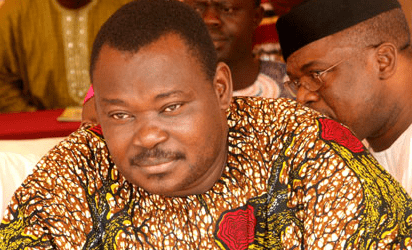Worried by mismanagement or looting of billions of Naira on a yearly basis as palliatives for poor Nigerians, Senator Jimoh Ibrahim has urged the Federal Government to look in the direction of food vouchers.
Senator Ibrahim, who represents Ondo South Senatorial District and Chairs the Senate Committee on Inter-Parliamentary Affairs, gave the admonition on Wednesday at an interactive session with journalists in Abuja.
He said that, apart from helping to put an end to the leaking baskets of palliatives being churned out to poor Nigerians on a yearly basis, the food voucher, would also help to ameliorate the problem of food insecurity in the country and perfectly fill the yearning gap of cash to GDP ratio in the country, which according to him, is 1.5% now.
“Food Vouchers if introduced and issued by the federal government to poor Nigerians across the 36 States of the Country and 774 Local Government Councils, would serve the purpose which is meant for, as against N15billion palliatives given to State governors by the Federal Government with attendant mismanagement or even outright diversion.
“Secondly, Since our Cash-to-GDP ratio in Nigeria is very small, Food vouchers will replace the Naira for food purchases by the poor or any Nigerian given. Cash to GDP ratio means, a country’s currency in circulation to its Gross Domestic Product.
“It is calculated by dividing the amount of cash in circulation by the Country’s Gross Domestic Product, which is very low in Nigeria, compared to many other countries, particularly the developed ones, with a 5 to 10% ratio.
“The Present administration headed by President Bola Tinubu, inherited an economy of cash to GDP ratio of 1% and has succeeded in increasing it to 1.52% and putting a series of well-envisioned policies and reforms on ground for further increase.
“As laudable as the efforts of President Tinubu are, in turning the Nation’s economy around, there is a need for the government to buy into the strategic idea of issuance of food vouchers to poor citizens as palliatives and also tax rich more.
“In fact, the rich in Nigeria are under-taxed, particularly those buying and using luxury things like private jets, highly expensive cars and buying houses in Dubai and other exclusive places in the world.
“In a nutshell, the rich in Nigeria, need to pay more taxes and those lacuna need to be tackled”, he stressed.















